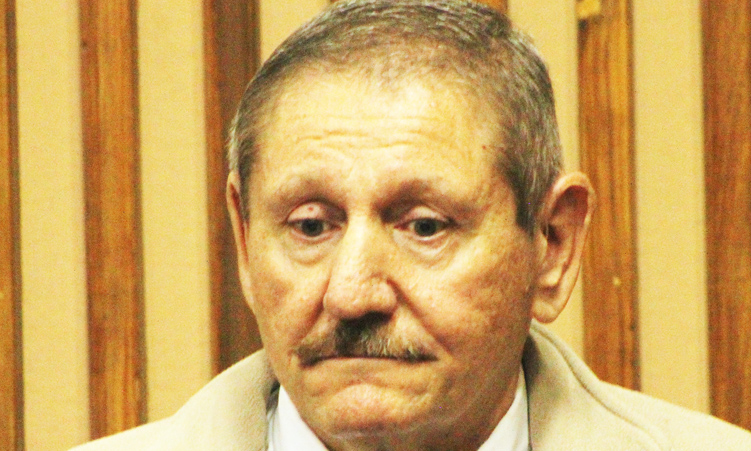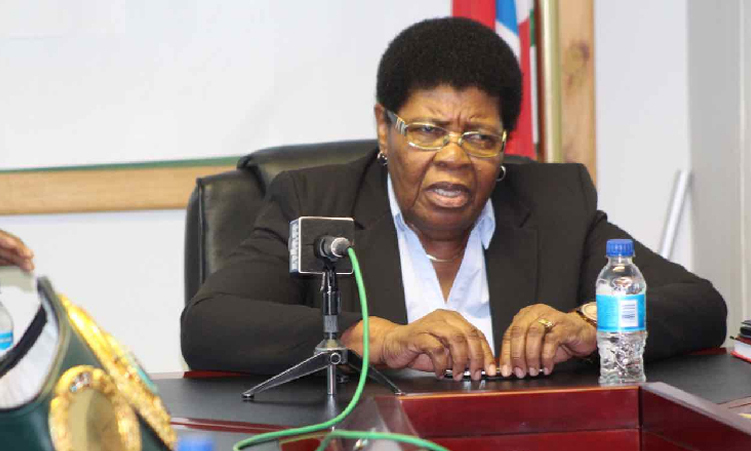A clinical psychologist who had consultations with former Namibian Institute of Mining and Technology (Nimt) employee Ernst Lichtenstrasser says a confession that he made about the murder of the institute’s two top executives about four years ago was not reliable.
Clinical psychologist Ute Sinkala testified in the Windhoek High Court yesterday that Lichtenstrasser was suffering from sleep deprivation, chronic pain due to a shoulder injury and a prostate problem, fatigue and hunger when he made a confession to police officers interrogating him at Walvis Bay on 15 May 2019. Lichtenstrasser’s confession “was obtained under extreme stress, and his mental state was compromised”, Sinkala stated in a report provided to the court.
In her report, she also said: “The circumstances of his interrogation resemble circumstances of torture which are inhumane and contravene human rights. He was not in a psychological state to give a reliable confession.” Lichtenstrasser, aged 61, is standing trial before judge Christie Liebenberg in connection with the killing of Nimt executive director Eckhart Mueller (72) and his deputy, Heimo Hellwig (60), on 15 April 2019.
The two men were gunned down at the institute’s head office at Arandis in the Erongo region when they arrived at the office for the start of their working day.
There were no known eyewitnesses to the shooting. In his confession, made four weeks after his arrest, Lichtenstrasser gave a detailed account of the killing of Mueller and Hellwig.
He related that after he and his wife had been involved in a quarrel at their home at Otavi on 14 April 2019, he drove to Arandis, spent the night close to the town, and the next morning followed the car in which Mueller and Hellwig travelled when he saw the vehicle arriving at Arandis.
He approached the two men when they were at the entrance of the Nimt head office, and when they spoke to him, asking him what he was doing there and telling him to leave, he lost control over himself and shot both of them, acting automatically as he did so, he said.
During his trial, though, Lichtenstrasser has told the court his confession was false and that he made it because he had been placed under pressure by police officers interrogating him and because the officers had threatened to arrest his wife as a suspect in connection with the murders as well. Sinkala, who testified as a defence witness, told the judge she conducted close to 12 hours of interviews with Lichtenstrasser in September and October last year, after she was asked by his sister to look at the circumstances in which he made the confession and how those circumstances may have influenced him.
Sinkala said according to Lichtenstrasser he was detained in dirty police cells and denied access to a lawyer and a medical doctor after his arrest, which took place at Karibib on the evening of 16 April 2019. While being held in custody, he started to experience recurring nightmares and also had difficulty sleeping, he reported.
Lichtenstrasser recounted that he made the confession during his eighth interrogation session with police officers following his arrest, Sinkala said.
She said at that stage he had started to panic, because the police officers had changed their interrogation tactics and were threatening to arrest his wife as an accomplice in connection with the murders. By then, she also stated in her report, Lichtenstrasser “was in a state of being completely impressionable and willing to do what it takes to end the torture”. He was not in a sound and sober state of mind when he confessed, Sinkala added in response to a question from legal aid defence lawyer Albert Titus.
During her cross-examination of Sinkala, deputy prosecutor general Antonia Verhoef, who is representing the state, noted that there were contradictions between the version that Lichtenstrasser gave when he testified in court and the information he gave to Sinkala and on which she based her findings.
The trial is continuing.
Stay informed with The Namibian – your source for credible journalism. Get in-depth reporting and opinions for
only N$85 a month. Invest in journalism, invest in democracy –
Subscribe Now!






